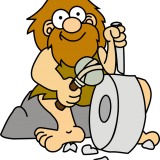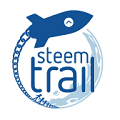I often describe my paleo diet as "Pastoral"
I know that our genetics came from premodern peoples, but they have also passed through many generations of modern peoples and some of the genes have obviously changed.

Take the gene that allows us to continue to drink milk past infancy - no other mammal has it. There's a reason we have that gene, it is a mutation, an adaptation, that allows us to get food from animals that we don't have to kill. We can raise them, produce a larger herd from their offspring, and then eat the males or surplus animals.
This changed the nature of the world for humans, and even that is an understatement. Famine was a constant problem for hunter gatherer families, nomadism was the result of having to move to find food more than anything else. Having cows and goats that you didn't have to eat allowed people to stay in one place, build secure structures and develop tools and trading centers.
I know, I know, you are about to say that agriculture did that.
So let's talk about agriculture. The real agriculture they are talking about is grain agriculture. People raising a few cabbages isn't what built civilizations, it was the dry storage of tons of grain. Grain set aside against drought and starvation, Grain used to make a little bread and porridge, but mostly to feed the animals.
Domestication started with dogs, perhaps 20,000 years ago. It was a good idea. Organized agriculture seems to have only been invented 10,000 years ago. Domestication of meat animals cannot be shown to precede that by very much, but it was common when agriculture started.
The following is my imagination, but stick with me here.
So I have dogs, by now they are a breed apart, and several breeds at that. Too many dogs, so that in the harsh winters I have to eat the extra ones or give them the food my children need. I wonder to myself if I could ever do the same thing with sheep. So I watch some sheep, learn to attract them with grain that I can barely eat anyway, and form a herd. Now I have to take care of them. So I go to a field that has the right kind of grass, I pull out the competing weeds, braid the surrounding edge growth bushes into a fence, and keep my sheep there.
So here comes the interesting part. I learn to store some of the hay with seeds in it, as food for my sheep over winter. But there's a forest fire, or some wandering men who raid my herd, or a disease that kills them all in a horrible way. Whatever happens, I have no sheep to eat.
But I have a field of grain and dry stored grain in a cave. I can boil it enough to eat it, and eventually I learn to grind it into flour. I end up getting more sheep back, but now I have two sources of food, the sheep I domesticated on purpose, and the wheat I domesticated by accident to feed the sheep.
That's how I think it happened at least. Animal husbandry in general (dogs) happened before agriculture, long before, so it makes sense that a known technology was used on meat animals before the new technology of grain agriculture came about.
Whichever it was, the peoples of the mesolithic were herding animals and living a pastoral life for just about as long as they were growing grain. I do not come from hunter/gatherers only, I also come from pastoral families who kept extensive herds and drank milk.
I've gone to read this article about once a year since it was published. I hope it never disappears.
Please try my Future History stories - Enmity

Hello @baerdric,
Congratulations! Your post has been chosen by the communities of SteemTrail as one of our top picks today.
Also, as a selection for being a top pick today, you have been awarded a TRAIL token for your participation on our innovative platform...STEEM.
Please visit SteemTrail to get instructions on how to claim your TRAIL token today.
If you wish to learn more about receiving additional TRAIL tokens and SteemTrail, stop by and chat with us.
Happy TRAIL!

This post has been ranked within the top 10 most undervalued posts in the first half of Dec 31. We estimate that this post is undervalued by $13.15 as compared to a scenario in which every voter had an equal say.
See the full rankings and details in The Daily Tribune: Dec 31 - Part I. You can also read about some of our methodology, data analysis and technical details in our initial post.
If you are the author and would prefer not to receive these comments, simply reply "Stop" to this comment.
I can't drink milk , I used to be able to but now drinking milk or eating cheese / butter has seriously unpleasant consequences. Maybe my ancestors where fisherman not pastoralists.
There's a good chance. Do you know what area your main ancestry is from?
Lowlands of Northern Europe via the U.K to Australia
Oh, well then you had a high chance of getting the gene, but random chance was not kind to you. It's actually a complex of control genes near the gene that produces lactase, and because you could drink it past infancy that means you may have some of the adaptations but not enough to keep production into adulthood,
That's an interesting theory and I'd bet you're on or near the mark. Well done :)
Pastoral sounds much more idyllic than Paleo, doesn't it? Though I'm sure it was still hard work!
I do ok on small amounts of cheese, cream and ghee. But I'm better off without cows milk, even if it's raw and fermented.
My most recent ancestors are from Britain and the Jersey Islands. My best foods seem to be most animal foods, root veges like carrot, a few nuts and surprisingly fruit. But stone fruit and brambles seem to be best.
nice :)
Thanks!